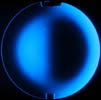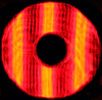August 1, 2011: Different
tests for different defects - a 10" mirror
I
thought I'd share some test results for some nearly-spherical mirrors
that I had around. These needed to be characterized for later
use
and figuring, so I took the opportunity to run three different tests
and take photos.
Tests include 1) Foucault test images, 2) interferograms from a
spherical-wave interferometer, and 3)
artificial star test images.
The first mirror was a 10" f/6.3, roughly spherical, with an emphasis
on rough!
Foucault
tests show a fairly rough surface, and I may not have gotten all of the
grime and slime off of the optical surface before testing!
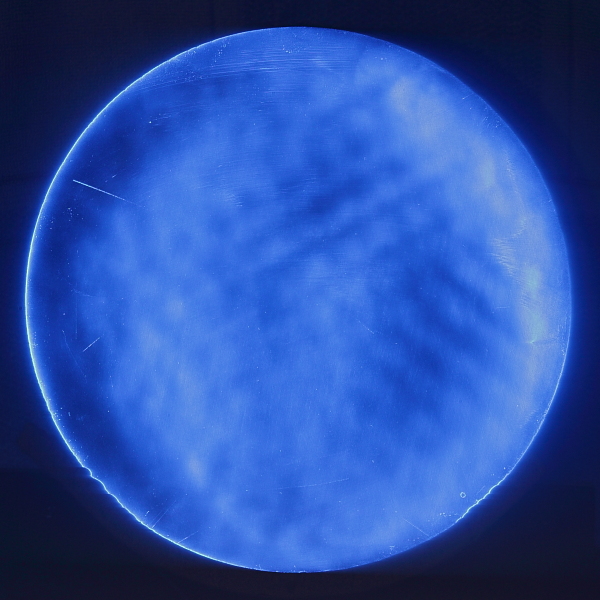
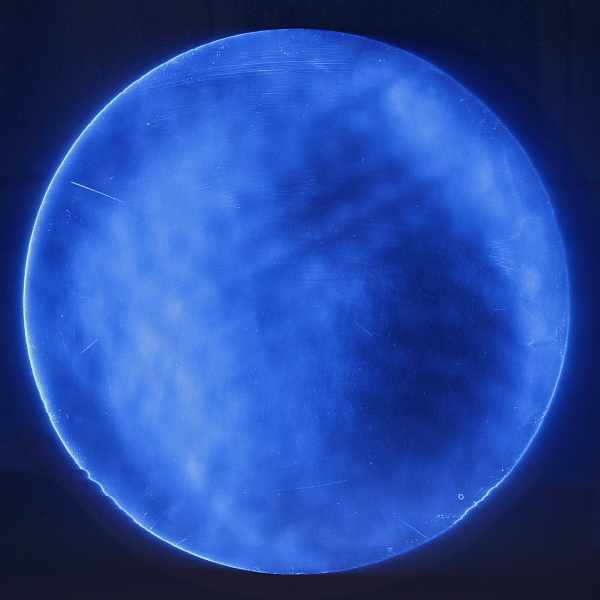
The
Foucault test clearly shows some patterns from prolonged pitch lap
pressing. It also shows a slightly non-symmetric figure and
one
that is not quite spherical (outer ~1.5" high).
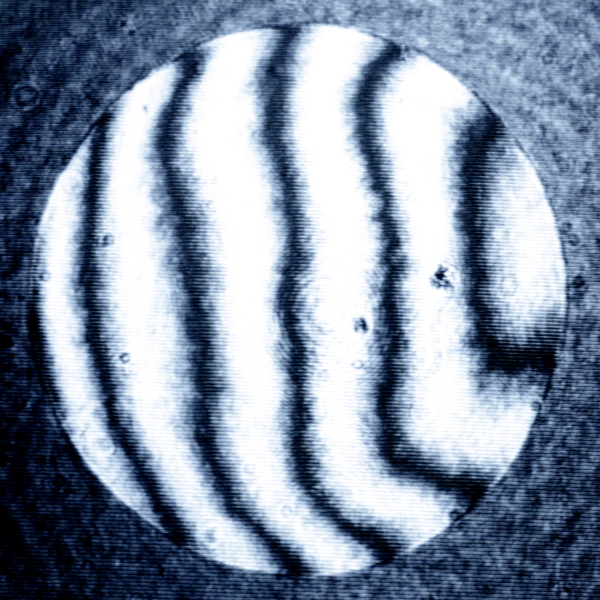
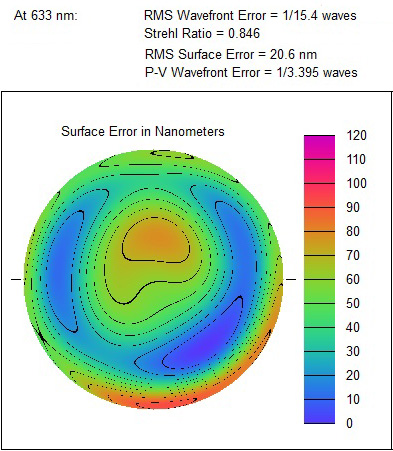
The
interferograms clearly show the higher outer areas and some
irregularity in the figure. They don't really show the
roughness.
A surface error plot based on the interferogram is at right
above, and shows the outer part of the mirror to be higher than the
rest, exactly what was observed with Foucault testing above.
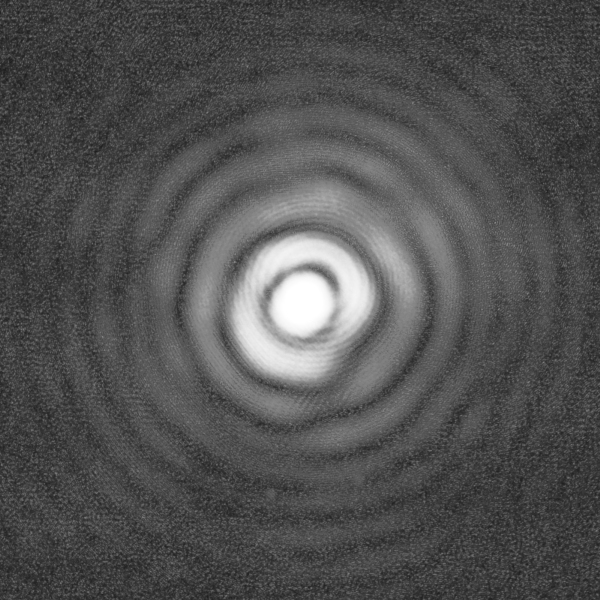
Finally,
an artificial star test shows a slightly irregular shape and rings, and
lacks a sharp focus. This
is a proprietary test that I use with a laser-illuminated pinhole
source. It will show more interesting results for the next
mirror, a thin 17.5" that has been mistreated, so stay tuned for that
one.
This
10" mirror is within radius tolerance, and will be polished to a
sphere, qualified interferometrically, and used as a test plate for a
convex spherical mirror which will be tested against it in contact
interference.
Please check back for future installements of "In
the Shop".
Mike
Lockwood
Lockwood Custom Optics
